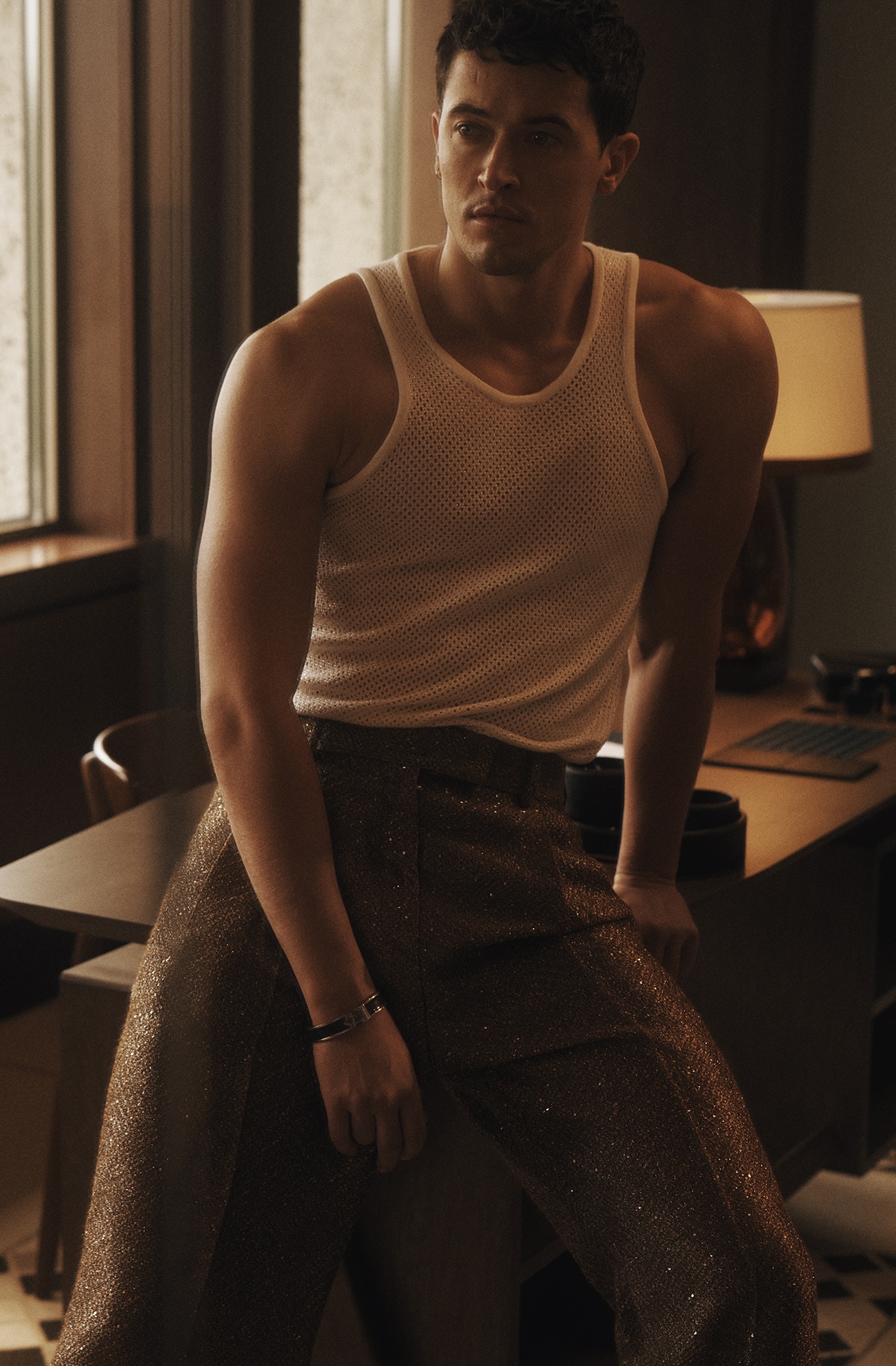Though Tom Blyth fits snugly into the category of “overnight superstar,” his success was anything but overnight. Rather, it took well over a decade for the 29-year-old’s career luck to turn around, despite heaps of blood, sweat, and tears shed along the way. While the Birmingham native’s most visible role as a young Coriolanus Snow in The Hunger Games: The Ballad of Songbirds & Snakes made him an instant household name, it’s his performances from some of his lesser-known projects that truly make Blyth one to watch, both on-screen and off. In MGM+’s Billie the Kid, he plays the titular role of an American outlaw from the late 19th century. In contrast, the forthcoming feature film Plainclothes will see Blyth in a plot revolving around New York City cops entrapping gay men in the 1990s, all based on a true story.

A Juilliard-trained actor, Blyth spent almost a decade auditioning without much success before moving to New York City, nearly 3,500 miles from home. His “down-to-earth” nature makes him more endearing than other “stars”—a moniker quite literally placing such celebrities as “out of this world.” That said, his work ethic appears to be beyond that of mere mortals. VMAN caught up with our dashing cover star while he was on the set of his latest project, Watch Dogs, in Sofia, Bulgaria.
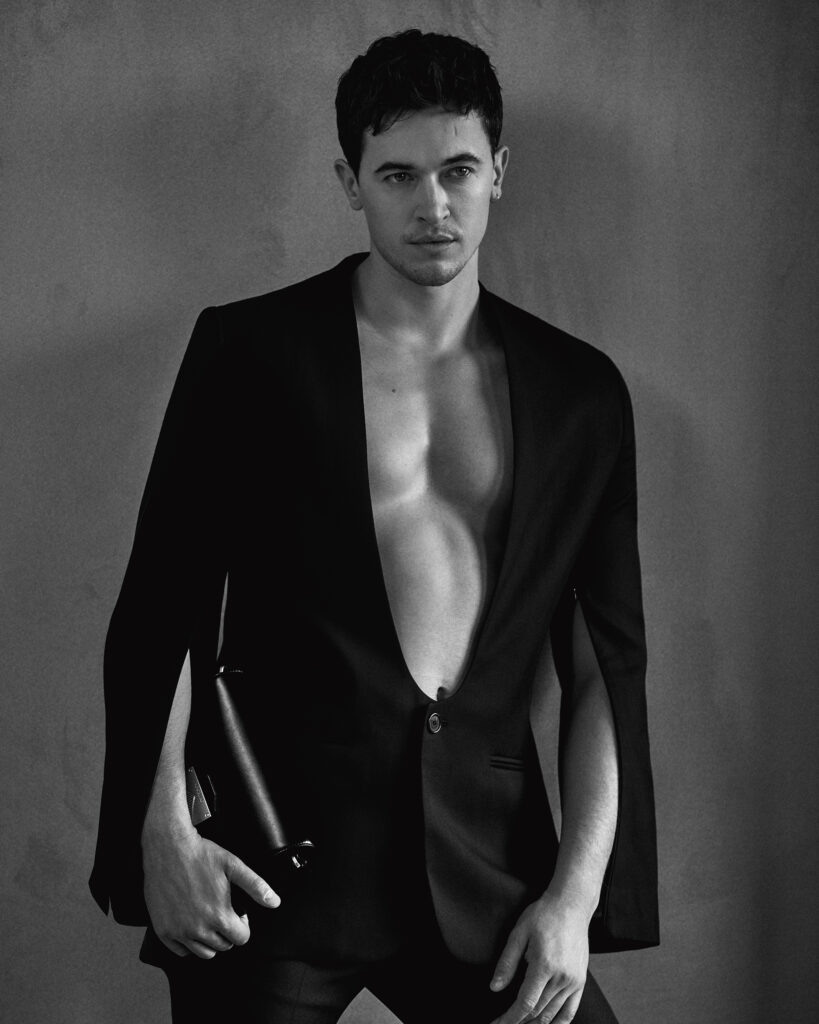
Meisterstück Messenger with mountain closure MONTBLANC
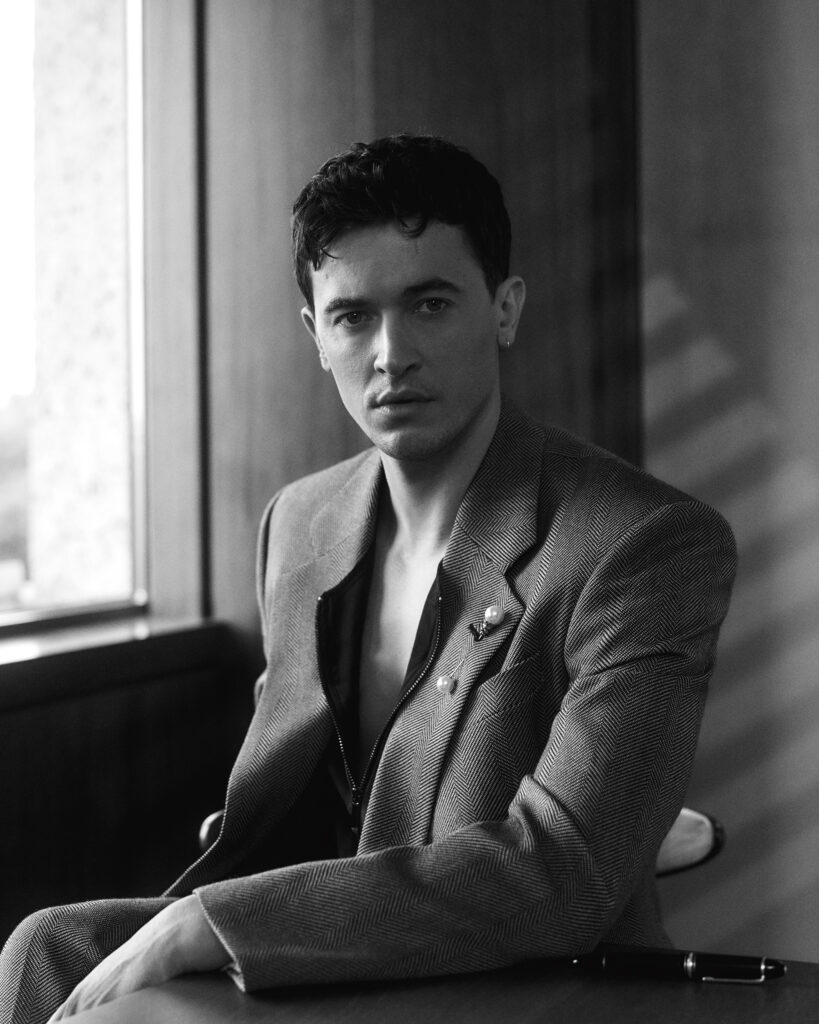
Desk and Meisterstück 149 Fountain Pen MONTBLANC
MATHIAS ROSENZWEIG: Actors often have mixed feelings about acting school. You graduated from Juilliard. What was that experience like?
TOM BLYTH: I was already kind of trying to be an actor without much success, just auditioning a lot and not getting many jobs. I knew I wanted to go to drama school, and Juilliard had always been top of the list, but it kind of felt like a pipe dream. So then I decided to audition for a drama school one more time, a “go big or go home” kind of thing. And then I wound up going to New York, and I haven’t looked back since. I had overall a massively net positive experience. It’s exhausting and you are super self-conscious the whole time because the whole purpose of drama school is to point out everything about you to yourself and neutralize it so you can have control over it. If you can battle with your ego and not let that get in your head too much, it can be a really transformative experience.
MR: So you moved to New York as a student, and now you’re living there as a booked and busy actor. How has your relationship with New York changed?
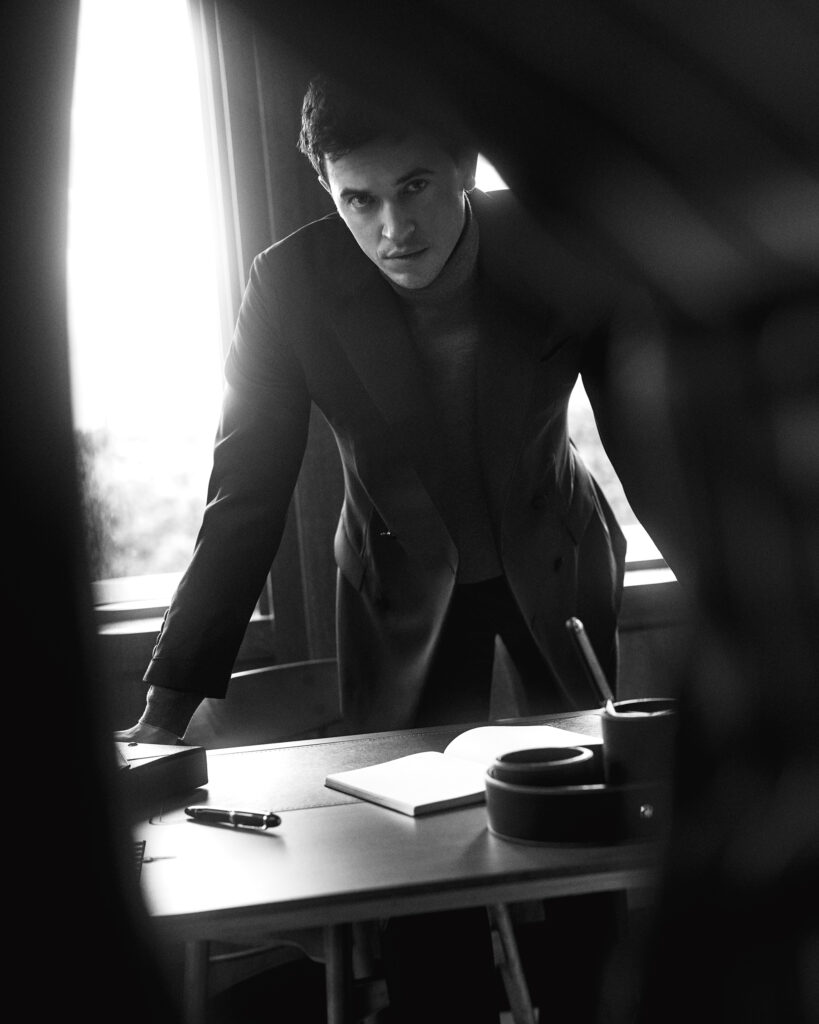
Top BRUNELLO CUCINELLI
Desk, desk accessories, Meisterstück 149 Fountain Pen MONTBLANC
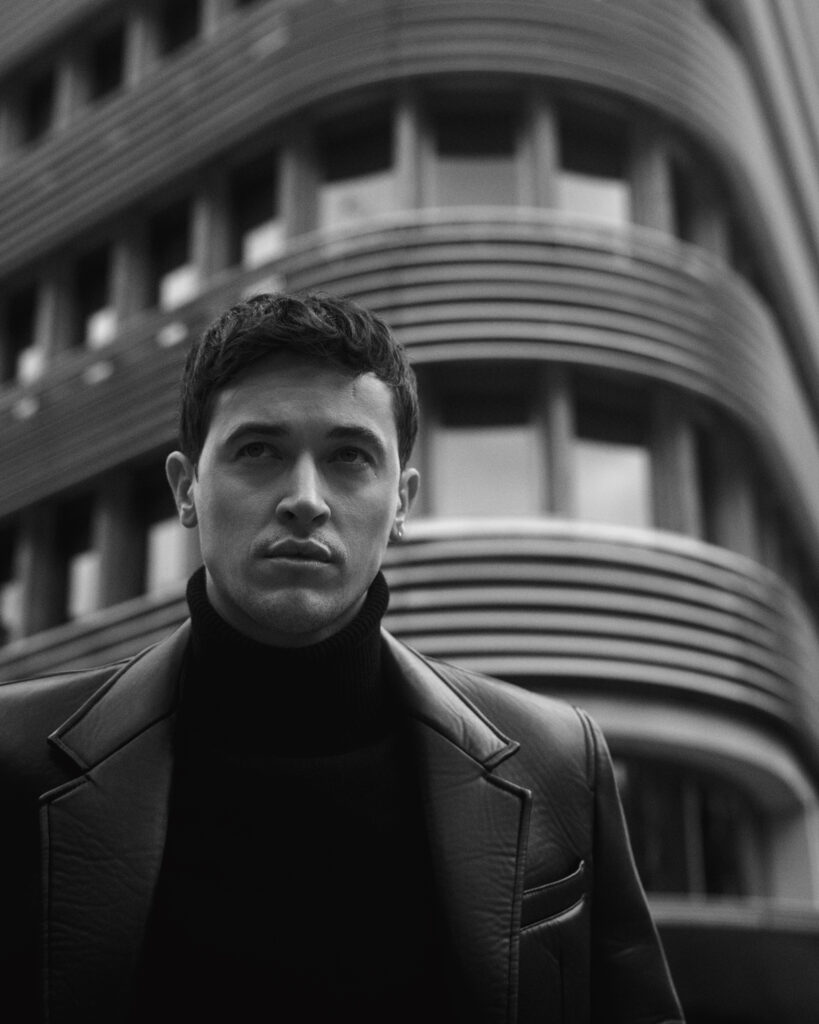
TB: I’m kind of joking but also not joking—the one big thing that comes to mind is that I can now afford to live there. I’ve been there for eight years and only in the past year could I really afford it. It’s crazy to think that for six and a half or seven years, I was just scraping by…I’m coming out on the other side, I can see how much it toughened me up. Like, if I can do 40 hours a week at drama school while also going and working my little administrative school job from 10 p.m. to 1 a.m., and have no money and still survive, then doing a hundred auditions and not getting any in a year will be a breeze. I went through times of having six roommates and mice in my apartment. I don’t think I would be so grateful now if it wasn’t for those years.
MR: You’ve played two characters now who are typically depicted as “bad guys”—the fictional Coriolanus Snow from The Hunger Games franchise, and Billy the Kid, a real historical figure. However, you portray them as relatable, moral people. Can you speak about that?
TB: I’m really drawn to bad guys for some reason, or to morally complex characters. I think that’s because I see the world that way. I look at people and think, no one’s really good or bad. Everyone’s this huge mix of ambitions and objectives, and they’re all kind of clashing every day. I’m fascinated by the gradients between the two. Like, what is the psychology behind people who maybe start off with good intentions and then wind up giving up on them? We see them in politics, right? Whatever your political beliefs may be, everyone on one side or the other looks at the other side and thinks they’re morally wrong. So it’s really the ultimate exercise in empathy, trying to understand the other. I could never really pull the trigger like Billy the Kid does, you know? I could never do what Coriolanus does in that movie.
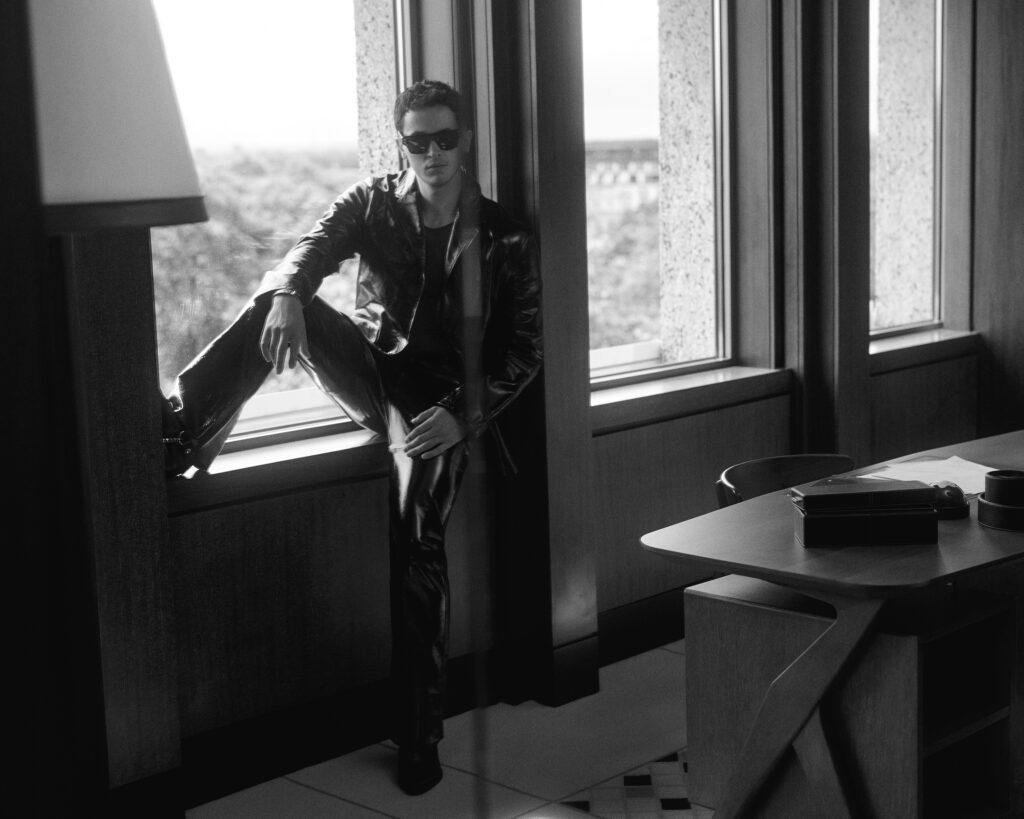
Bracelet, sunglasses, desk, desk accessories MONTBLANC
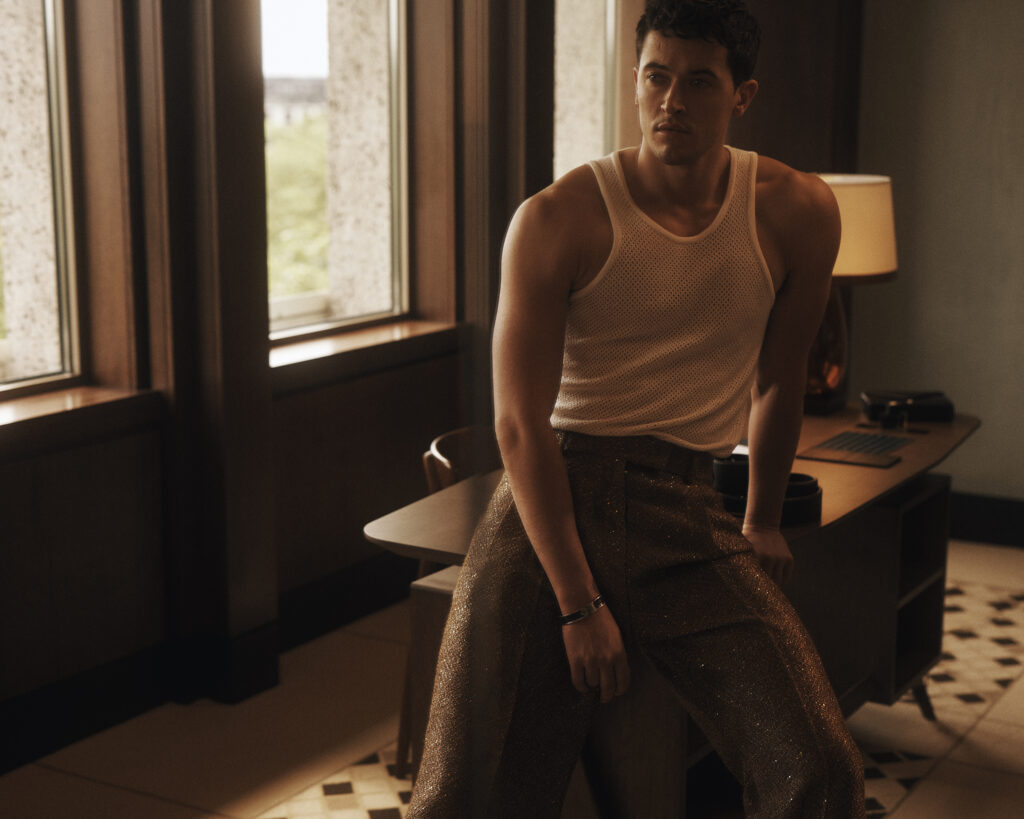
Bracelet, desk, desk accessories MONTBLANC
With that one, I was really keen because when I got that job, everyone thought they knew who the character was to an extent because the late and great Donald Sutherland did such an amazing job portraying him as a villain. But I got to play him 60 years before. And I went down a rabbit hole of reading about Vladimir Putin when he was a young man before he joined the KGB. As a young man in school, he probably didn’t know he was going to be who he is now, you know? And I did the same with Benito Mussolini, just like all these dictators.
MR: They all have these sort of sick and twisted coming-of-age stories wherein they become grown men, but evil ones. That’s rarely the story that gets told.
TB: You know that feeling when you’re a kid and you have that feeling that all adults are good and know best? I had this distinct moment when I realized that they don’t always know what they’re doing. I actually got into a minor car crash when I was a kid with my mom, and I just saw the panic in her eyes. I think it was the first time as a kid that I’d seen that loss of control in her. I remember thinking, Oh, she’s an adult and she actually doesn’t know what to do in this moment. And I don’t know what to do. I remember holding onto that thought and thinking: No one’s really driving the ship.
MR: This attraction to those characters—the ones that best highlight the flaws in our human nature—is that something you’re still pursuing?

Earring talent’s own
Desk, desk accessories, Meisterstück 149 Fountain Pen MONTBLANC
TB: I actually recently discussed with my agent that maybe it’s time to play some nice guys for a bit. Just because the last two films I’ve done, including the one I’m doing right now, they’re very morally complex characters, if not verging on evil. It’s so much fun getting to do stuff that you would never do in real life, and I try to find what’s so delicious about it. But it does take a toll. I get more tired of playing those guys. At the end of the day, I’m emotionally taxed.
MR: I know some actors have trouble letting their characters go at the end of the day. Is that the case for you?
TB: It’s a fine line because if I don’t take the characters home a little bit, I find that I’m not going deep enough. I do let it come home with me because I want to ruminate on them and almost think the character’s thoughts. But the one I’m doing right now—Watch Dogs—I don’t want to give too much away, but the character’s very morally complex. I had to draw a line in the sand and say that when I finished at 7 p.m., he would not be coming home with me. I don’t want him in my room at night.
This story appears in the pages of VMAN 53: now available for purchase!
Photography Blair Getz Mezibov
Fashion Gro Curtis
Grooming Lucy Halperin (The Wall Group) using products by ENVIRON SKINCARE
Executive producer Anastasia Suchkov (Noted Collective)
Producer Jenny Day (Noted Collective)
Set design Julia Dias Digital technician Lawrence Atkin
Lighting director Corey Danieli
Fashion Coordinator Liv Vitale
Stylist assistants Keeley Dawson, Maia Burt
Set design assistant Vanessa Lunn
Location 45 Park Lane Hotel
Discover More









